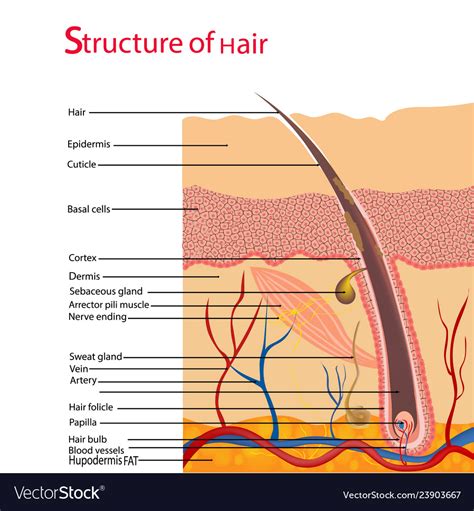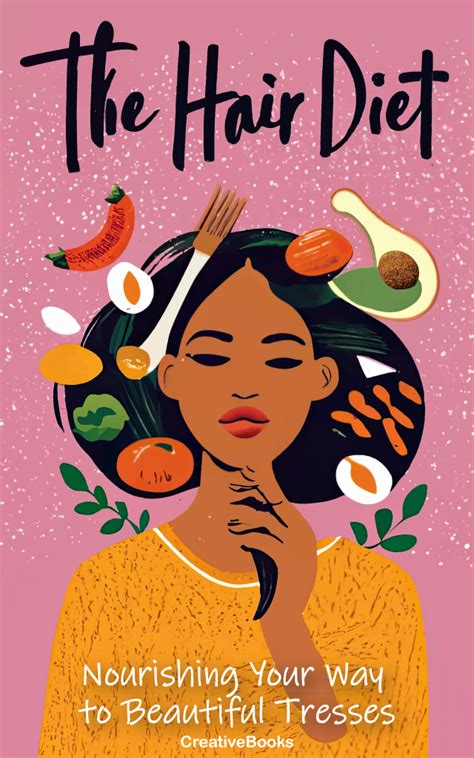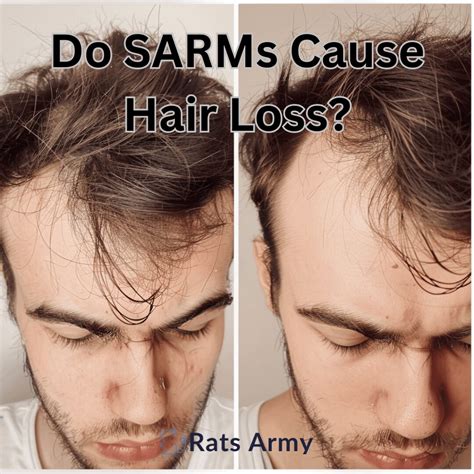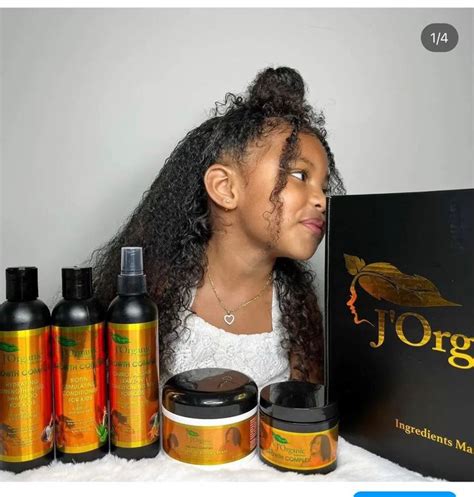Have you ever found yourself in awe of someone's magnificent mane, flowing effortlessly and captivating all who lay eyes upon it? The allure of luscious locks has long been a source of fascination for many, transcending cultural and societal boundaries. It embodies beauty, confidence, and vitality, serving as a crown that defines our appearance and style. Yet, the secrets behind achieving and maintaining such vibrant tresses often remain a mystery, hidden beneath layers of myths and misconceptions.
Throughout history, humans have sought means to nurture and enhance their hair, employing a myriad of techniques and treatments. From ancient belief systems prescribing ceremonial rituals to modern scientific breakthroughs, the quest for a luxurious mane has never ceased. A plethora of products claiming miraculous results flood the market, promising instant transformations and supernatural growth. However, amid this sea of options, navigating the expansive realm of hair care can be overwhelming.
While some may attribute the mesmerizing allure of abundant hair to genetic predisposition or external factors, the truth lies in the intricate balance of internal and external factors. The health of our hair is intricately entwined with our overall well-being and lifestyle choices. From nutrition and hydration to stress management and self-care rituals, every aspect of our lives can impact the vibrancy and vitality of our tresses. Unlocking the secrets behind beautiful locks requires a holistic approach, understanding that radiance emanates from within.
The Science of Hair: Discovering the Growth and Structure of our Tresses

In this section, we delve into the fascinating world of hair, exploring its intricate composition and the processes behind its growth. By understanding the anatomy of hair, we can gain insights into its resilience, adaptability, and the factors that contribute to its overall appearance and health.
The Foundation: Hair Follicles
At the core of hair lies the hair follicle, a small sac-like structure embedded within the skin. The hair follicle serves as the anchor for each strand, providing vital nourishment and support for its growth.
The Growth Cycle: An Ever-Changing Journey
Hair growth is a dynamic process characterized by distinct cycles. These cycles include the anagen phase, where hair actively grows, and the telogen phase, when hair remains in a resting state. Understanding these phases helps us comprehend the continuous regeneration and shedding of our precious locks.
The Structure: From Cuticle to Cortex
Each strand of hair comprises various layers that work harmoniously to dictate its texture, strength, and appearance. The outermost layer, known as the cuticle, acts as a protective shield, while the cortex contains the pigment responsible for our hair color and the elasticity that allows it to withstand daily stressors.
The Role of Proteins: Building Blocks of Healthy Hair
Proteins such as keratin provide the foundation for strong and resilient hair. By nourishing our bodies with a balanced diet, we can support the production of these essential building blocks and maintain the integrity of our strands.
Factors Affecting Hair Growth
Various internal and external factors can influence hair growth and its overall health. From genetics and hormonal balance to environmental stressors and styling practices, understanding these factors can empower us to make informed choices and cultivate a hair care routine tailored to our unique needs.
By unraveling the mysteries of hair growth and structure, we gain a deeper appreciation for this enigmatic aspect of our physical identity. Armed with knowledge, we can unlock the potential of our tresses and embrace the full beauty and vitality that luscious, abundant hair brings.
The Influence of Genetics on Hair Quality
Understanding the role of genetics in determining the quality of your hair is an intriguing aspect that unveils the mysteries of what makes each individual's hair unique. Our genetic makeup plays a significant role in determining various characteristics of our hair, such as texture, thickness, color, and even potential hair loss.
Genes:
Genes are the building blocks of life, carrying the instructions for our physical traits. Within our DNA, specific genes are responsible for influencing the development and growth of our hair. These genes regulate the production of proteins and hormones that directly impact the health and appearance of our locks.
Hair Texture:
The texture of your hair, whether silky, wavy, or curly, is largely influenced by genetics. Certain genes instruct the hair follicles to produce proteins that determine the shape and structure of the hair strands. These proteins, such as keratin, form the foundation of our hair and give it its unique texture.
Hair Thickness:
Another genetic factor that affects the quality of your hair is its thickness. Genes can influence the number of hair follicles you have, their size, and the density of hair growth. Some individuals are genetically predisposed to have thick, voluminous hair, while others may have thinner hair as determined by their genetic blueprint.
Hair Color:
The color of your hair is determined by a complex interplay of genes. Variations in specific genes affect the production and distribution of pigments called melanin, which ultimately determine whether your hair will be blonde, brunette, red, black, or any other shade. Genetic factors also play a role in how your hair color may change over time, such as the onset of graying.
Hair Loss:
Genetics also plays a pivotal role in hair loss, scientifically known as alopecia. Certain genes can make individuals more susceptible to conditions like male and female pattern baldness. These genes affect the sensitivity of hair follicles to hormones, leading to the gradual thinning of hair or even complete hair loss.
In conclusion, our genetic makeup has a profound influence on the quality of our hair, including its texture, thickness, color, and potential hair loss. Understanding the role of genetics can provide valuable insights into individual hair characteristics and contribute to the development of personalized hair care strategies.
Diet and Hair Health: Nourishing Your Way to Gorgeous, Resilient Hair

The relationship between diet and hair health is an intriguing topic that often goes unnoticed. The food we consume plays a significant role in the condition and appearance of our hair. By making mindful choices and ensuring a balanced diet, you can effectively nourish your hair from within, resulting in beautiful and strong locks.
Here are some key points to consider when it comes to diet and hair health:
- Protein: Including sufficient protein in your diet is crucial for healthy hair growth. Foods such as lean meats, fish, eggs, and legumes are excellent sources of protein that provide the building blocks for strong hair strands.
- Essential Fatty Acids: Incorporating foods rich in essential fatty acids, like avocados, nuts, and seeds, can promote hair growth and maintain scalp health. These fats nourish the hair follicles and help prevent dryness and brittleness.
- Vitamins and Antioxidants: Ensuring an adequate intake of vitamins and antioxidants, particularly vitamins A, C, and E, can enhance hair health. Brightly colored fruits and vegetables, such as carrots, berries, and leafy greens, are excellent sources of these essential nutrients.
- Iron and Zinc: Iron and zinc play essential roles in hair growth and strength. Including iron-rich foods like lean red meat, spinach, and lentils, as well as zinc sources such as oysters, pumpkin seeds, and whole grains, can help maintain vibrant hair.
- Hydration: Staying hydrated is vital for overall hair health. Drinking an adequate amount of water each day keeps the hair shafts hydrated and promotes healthy hair growth.
By adopting a well-rounded diet that incorporates these hair-friendly nutrients and staying mindful of your overall nutritional intake, you can nourish your hair from the inside out. A vibrant and resilient mane will be the beautiful result of your dietary efforts.
The Impact of Hair Care Products: Finding the Right Products for Your Hair Type
In this section, we will explore the significant role that hair care products play in maintaining the health and appearance of our hair. Understanding the unique needs of our hair type is crucial when it comes to choosing the right products. By using the appropriate hair care products, we can enhance the natural beauty of our locks and address specific concerns such as dryness, frizz, or damage.
When it comes to selecting hair care products, it's essential to consider factors such as hair texture, thickness, and scalp condition. Our hair type can vary from straight, wavy, curly to coily, while our scalp can range from oily, normal, to dry. These variations require tailored products that can effectively cleanse, condition, and style, promoting healthy hair growth and overall hair quality.
- Shampoos:
- Conditioners:
- Treatments and Masks:
- Styling Products:
Choosing a shampoo that caters to your hair type is essential for maintaining its health. For instance, individuals with fine or oily hair might benefit from volumizing or clarifying shampoos, while those with dry or damaged hair could opt for moisturizing or repairing shampoos.
Conditioners are vital in providing hydration, improving manageability, and preventing breakage. Lightweight conditioners work well for fine or oily hair, whereas thicker, more nourishing conditioners are suitable for dry or damaged hair.
For extra care and nourishment, incorporating treatments and hair masks into your routine can work wonders. These products target specific concerns like hydration, repair, or even scalp issues to promote optimal hair health.
Styling products such as mousses, gels, and serums help create desired looks and protect the hair from heat damage. Understanding your hair's natural tendencies, whether it's prone to frizz, requires volume, or needs extra hold, will guide you in choosing the right styling products.
Experimenting with different hair care products is a part of the process, but being aware of your hair type and its specific needs will save time, money, and potential damage in the long run. Remember, finding the perfect combination of products tailored to your hair type is key to unlock the full potential of your luscious locks!
The Truth Revealed: Uncovering the Causes of Hair Loss and Effective Measures to Prevent It

Within the realm of luxurious and bountiful strands lies a hidden reality that many individuals face - hair loss. Understanding the truth behind this common phenomenon can help demystify its causes and pave the way for effective prevention strategies.
Embarking on a quest for a head full of healthy and vibrant hair requires recognizing the common culprits that contribute to hair loss. Factors such as genetics, hormonal imbalances, poor nutrition, excessive styling, and certain medical conditions can all play a part in this plight. By delving into the various causes, one can gain a deeper awareness of the underlying factors that may be at play in their own hair loss situation.
While the causes may vary, the quest for prevention remains a constant goal for those seeking to preserve and enhance their precious locks. Implementing effective strategies to thwart hair loss involves a holistic approach that encompasses lifestyle changes, proper hair care practices, and targeted treatments.
One of the fundamental steps in hair loss prevention is nurturing a healthy body from within. Embracing a balanced and nutritious diet can equip the body with the essential nutrients needed for optimal hair growth and maintenance. Additionally, adopting a stress-reducing routine, engaging in regular physical activity, and getting adequate sleep can all contribute to an overall healthier environment for hair follicles to thrive.
Furthermore, implementing proper hair care practices is vital in safeguarding against hair loss. This includes gentle handling of the hair, avoiding excessive heat styling and chemical treatments, and using high-quality hair products suitable for one's specific hair type and condition. Regular scalp massages and maintaining a clean and conditioned scalp can also promote a conducive environment for hair growth.
For those seeking more targeted prevention measures, there are various treatment options available. These can range from over-the-counter products containing FDA-approved ingredients to prescription medications and therapies recommended by qualified healthcare professionals. Understanding the potential benefits and risks associated with each option is key in making an informed decision and tailoring the approach to individual needs.
Unraveling the truth about hair loss and adopting effective prevention strategies is a journey that requires both knowledge and commitment. By exploring the underlying causes and embracing a multifaceted approach, one can unlock the secrets to maintaining a head of beautiful and resilient locks.
Hair Styling Tips: Tricks to Enhance the Fullness and Volume of Your Hair
Unlock the secrets to achieving fuller and more voluminous hair with these expert hair styling tips that will help you transform your look. By incorporating these tricks into your hair care routine, you can create the illusion of thicker and more abundant locks, adding to your overall confidence and style.
1. The Power of Blow-drying
Blow-drying your hair in the right way can instantly give it a fuller appearance. Start by applying a volumizing mousse or spray to damp hair, focusing on the roots. Flip your head upside down while blow-drying to create instant lift and volume. Use a round brush to lift the roots even further and direct the airflow upwards. Finish off by blasting your hair with cool air to lock in the volume.
2. Teasing for Texture
Teasing, also known as backcombing, can add texture and volume to limp or flat hair. To achieve this, take small sections of hair close to the roots and backcomb them gently using a fine-toothed comb or a teasing brush. Work from the crown towards the front, being careful not to damage your hair. Once you've backcombed all desired sections, lightly smooth down the top layer for a polished look.
3. Choosing the Right Hairstyles
Opt for hairstyles that create an illusion of fullness. Layered cuts, waves, and curls are excellent choices as they add movement and volume. Avoid sleek and straight styles, as they can make your hair appear flatter. Experiment with different updos, such as high ponytails or voluminous buns, that give the appearance of fuller hair.
4. Utilizing Hair Accessories
Accentuate the volume of your hair by using well-placed hair accessories. Headbands, hair clips, and volumizing inserts can all contribute to creating the illusion of fuller locks. Headbands with texture, like those with ruffles or bows, can add extra height and volume. Hair clips strategically placed near the roots can help lift the hair, while volumizing inserts can instantly create height and fullness at the crown.
5. Embracing Dry Shampoo
Dry shampoo is not only a time-saver but also a great tool for adding volume to your hair. Apply dry shampoo to the roots and massage it in to absorb excess oil and add texture. This gives your hair a lift and creates the appearance of fuller locks. Remember to brush out any visible residue to achieve a natural and voluminous look.
With these hair styling tips, you are well on your way to achieving the dream of fuller, more voluminous hair. Incorporate these tricks into your daily routine to unlock the potential of your locks and confidently embrace your luscious, voluminous mane.
Natural Solutions for Healthy Hair: Exploring Alternative Measures for Hair Care

Discovering effective and natural remedies for maintaining healthy hair has become an important aspect of beauty care. Rather than relying solely on commercial products, exploring alternative options can unveil a plethora of benefits for your locks.
1. Herbal Hair Rinses: Incorporating herbal rinses into your hair care routine can provide nourishment and enhance hair health. Try infusions such as chamomile, rosemary, or lavender to revitalize your scalp and promote hair growth.
2. Essential Oils: Essential oils have long been recognized for their holistic benefits, including hair care. Lavender oil soothes the scalp, tea tree oil combats dandruff, and rosemary oil stimulates circulation, resulting in healthier hair follicles.
3. Protein-Rich Diets: Maintaining a balanced diet is crucial for hair health. Include foods rich in protein, such as eggs, fish, and legumes, to promote hair growth and strengthen the strands from within.
4. Scalp Massages: Regular scalp massages increase blood flow to the hair follicles, promoting healthy hair growth. Use gentle, circular motions with your fingertips and incorporate natural oils, like coconut or almond oil, for an added nourishing effect.
5. Aloe Vera: Aloe vera is known for its soothing and healing properties. Applying aloe vera gel directly to the scalp and hair can help combat dryness, dandruff, and irritation, leaving your hair healthy and lustrous.
6. Apple Cider Vinegar Rinse: An apple cider vinegar rinse helps balance the pH of the scalp, which can be beneficial for promoting hair health. Dilute apple cider vinegar with water and use it as a final hair rinse after shampooing to add shine and reduce frizz.
7. DIY Hair Masks: Creating your own hair masks using natural ingredients like yogurt, honey, and avocado can provide essential nutrients, moisture, and strength to your hair. Experiment with different combinations to find what works best for your specific hair type.
By exploring these alternative measures, you can unlock the secrets to healthier, more vibrant hair. Embracing these natural remedies not only enhances the health of your hair but also promotes overall well-being without relying on harsh chemical products.
FAQ
What are some natural remedies for promoting hair growth?
There are several natural remedies that can help stimulate hair growth. Some popular options include regularly massaging the scalp with essential oils such as rosemary or peppermint oil, using aloe vera gel to nourish the hair follicles, applying onion juice to the scalp, and taking supplements like biotin or fish oil which promote healthy hair growth.
What role does diet play in maintaining healthy hair?
Diet plays a vital role in maintaining healthy hair. Consuming foods rich in vitamins A, C, E, and Biotin can contribute to luscious locks. Including foods like salmon, eggs, spinach, avocados, nuts, and seeds in your diet can provide essential nutrients to support hair health.
Are there any specific hair care practices that can help reduce hair fall?
Avoiding excessive heat styling, such as using hot tools or blow dryers, can prevent hair fall. Additionally, gently brushing your hair with a wide-toothed comb, avoiding tight hairstyles, and using a mild shampoo and conditioner can help reduce hair fall. It's also important to not vigorously towel dry wet hair and let it air dry instead.



